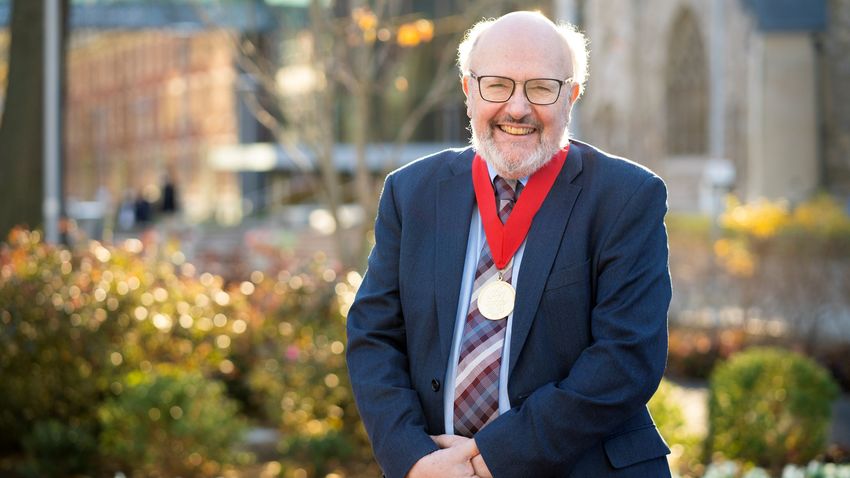
Two faculty leaders in the College of Public Health’s School of Social Work have advanced to prominent roles in influential national organizations. Philip McCallion, director of the School of Social Work, has become a fellow of the American Academy of Social Work and Social Welfare (AASWSW). Cheryl Hyde, associate professor, has been elected as the new Chair of the Association of Community Organizing & Social Action (ACOSA).
“These things all feed on each other, and more people start to see what we're doing at the School of Social Work,” McCallion says
McCallion joins the small annual class of fellows at AASWSW, a professional organization aimed at advancing the advocacy and impact of social work. Fellows are individuals honored for excellence in the field through high-impact work as researchers and practitioners.
“While this may recognize an individual," McCallion says. “it's also about recognizing the good works that are being done by the people that you have worked with. So it is a recognition of the school and the college as well.”
For Hyde, taking the helm at ACOSA brings her full circle. She was one of the association’s co-founders in the late 1980s and had been a board member before her election as chair. ACOSA focuses on the macro practice of social work. Whereas micro or clinical social work is about working with individuals and their immediate relationships, "macro” work focuses on organizational-level, community-level, and policy-level interventions that can have societal impact. ACOSA’s diverse members include community organizers, activists, nonprofit administrators, community builders, policy practitioners, students and educators.
“It really reflects the roots of social work, working at the community level,” says Hyde.
Hyde chairs the macro social work concentration in the School of Social Work. “We have a robust macro social work curriculum. Students focus on how to run organizations, how to engage community groups and think about collective actions, how to testify and lobby for legislation,” she explains.
“I hope this helps encourage people to think about Temple’s School of Social Work, whether to pursue their education or join us as a faculty member,” McCallion says. “We have growing enrollment, particularly in our master's program. We have a number of new faculty who are doing very exciting work. We are attracting new grants. The school is making very important differences in a challenging time for us all, whether it's because of COVID or concerns about violence prevention. As a school, we’re seeking to make a difference and prepare students who will make a difference.”
